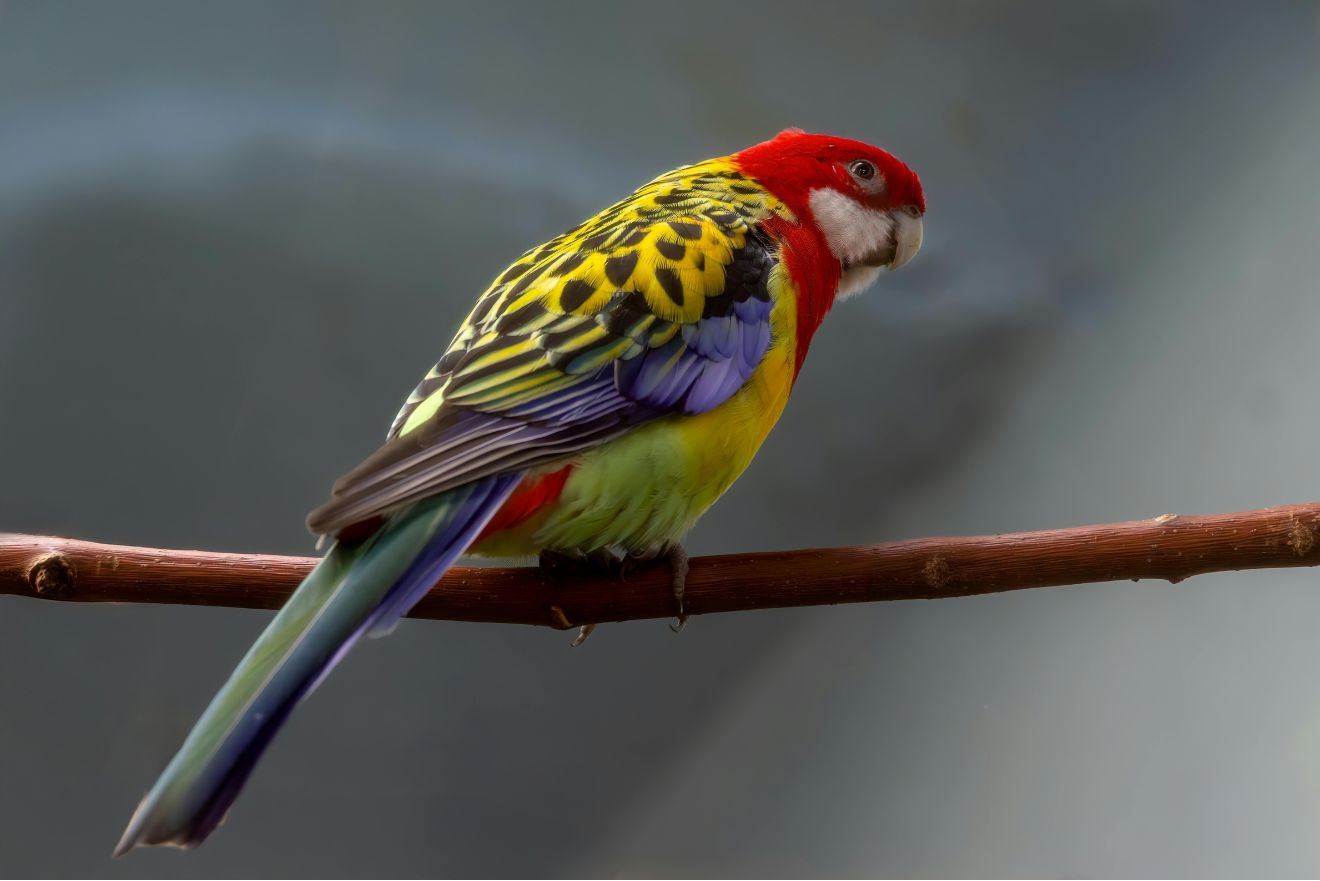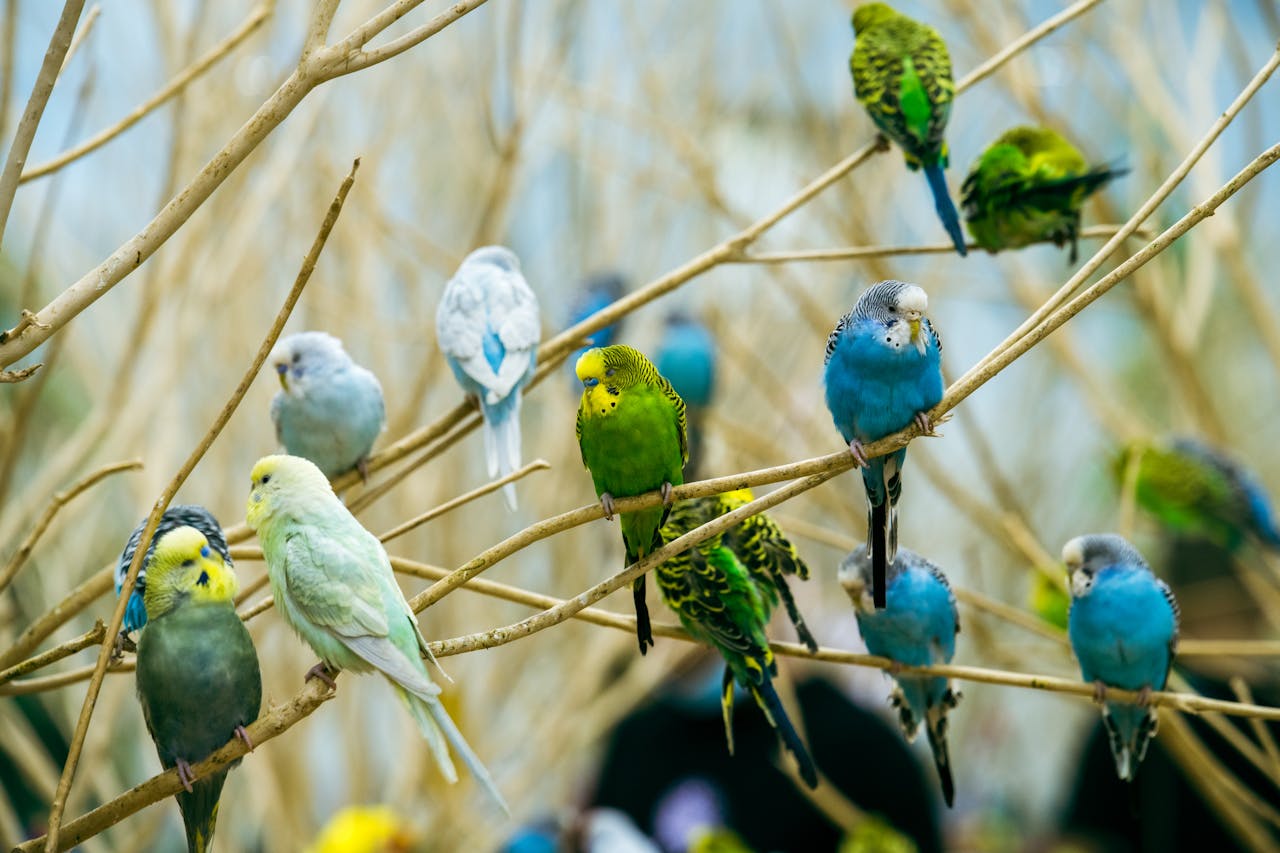Parrotlets may be small in size, but they have big personalities. These tiny parrots are known for their playful, curious nature and strong bond with their owners.
Before diving into their care, breeding, and special characteristics, it’s important to understand what makes Parrotlets unique.
Originating from Central and South America, they require dedicated attention, a stimulating environment, and a proper diet to thrive. This guide will provide all the essential information needed for owning and caring for a Parrotlet.
Table of Contents
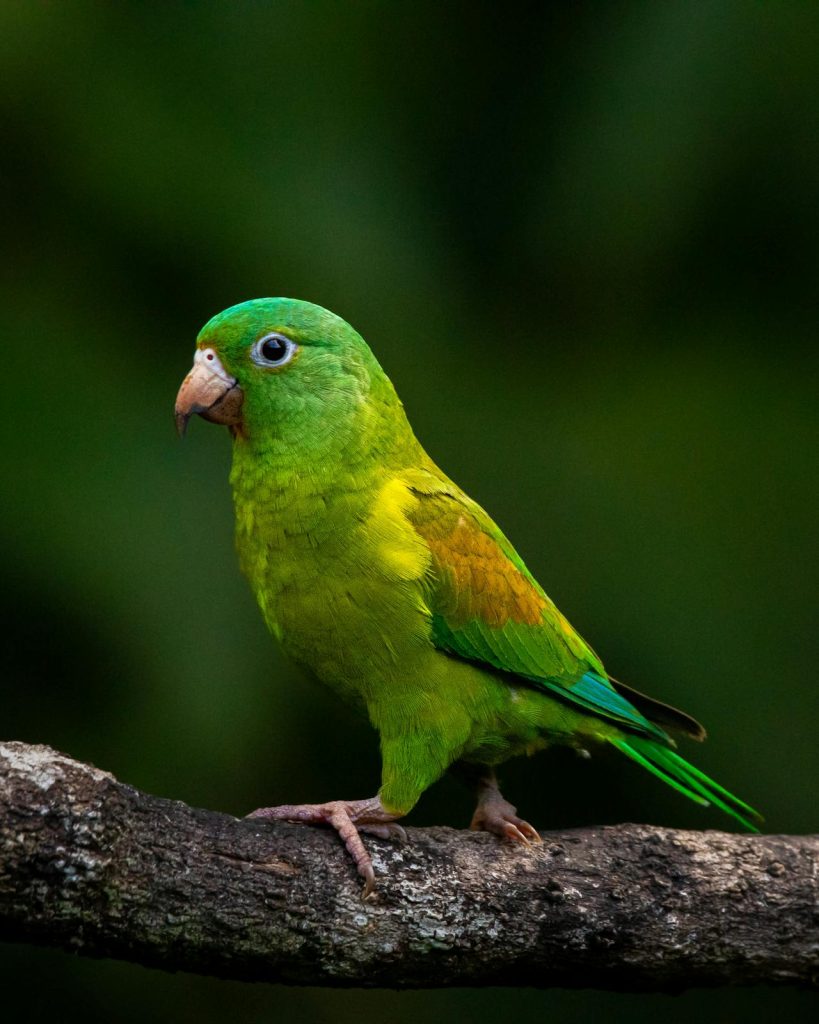
Introduction
Parrotlets are one of the smallest parrot species, yet they possess the intelligence and attitude of their larger relatives. These birds are full of energy, highly interactive, and form strong bonds with their owners.
Although small, they require significant care, socialization, and a long-term commitment. This guide explores everything about Parrotlets, from their origin and traits to care, breeding, and common challenges.
For more insights on pet birds, check out our article on Why Birds Make the Perfect Pets.
Origin of Parrotlets
Parrotlets originate from the forests and shrublands of Central and South America, including regions in Mexico, Peru, Ecuador, and Brazil.
These birds are part of the Psittacidae family and are closely related to larger parrots, sharing many of their characteristics in a compact size.
In the wild, they travel in small flocks, communicating with high-pitched calls and foraging for food in dense vegetation.
Physical Traits: Color, Size, and Lifespan
Parrotlets are tiny birds, measuring about 4.5 to 5.5 inches (11-14 cm) in length. Despite their small stature, they have a robust build with strong beaks.
Their feathers come in vibrant colors, with the most common being green with blue highlights in males and a more muted green in females. There are also color mutations, including yellow, blue, and albino varieties.
With proper care, Parrotlets can live between 15 to 20 years, making them a long-term commitment for any owner.
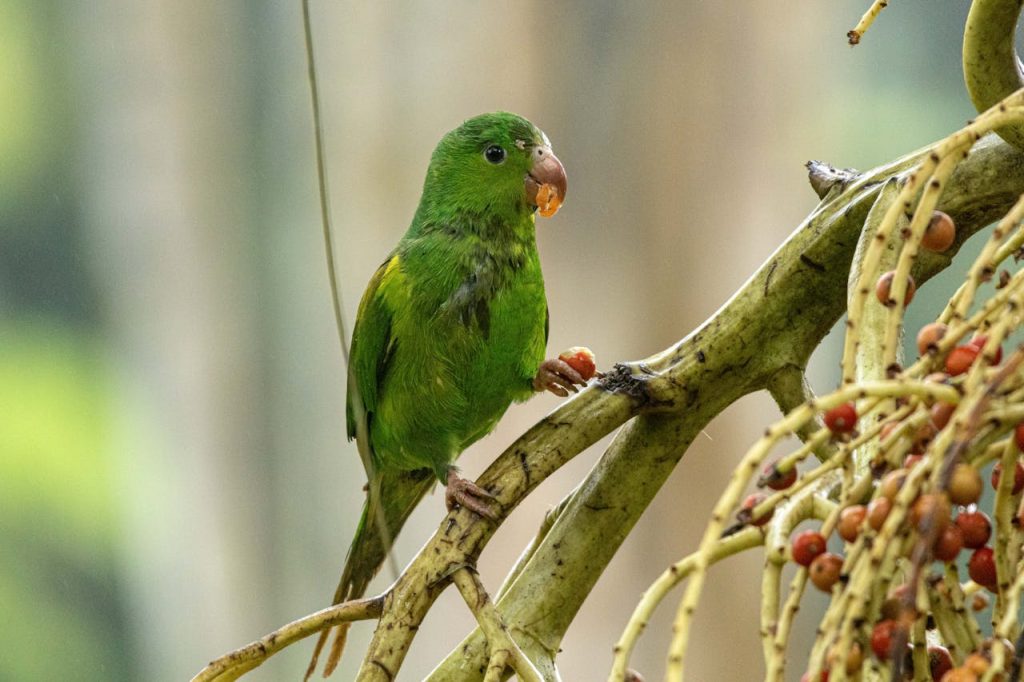
Unique Traits of Parrotlets as Pets
Parrotlets may be small, but they have bold and confident personalities. They are highly intelligent and can learn tricks, mimic sounds, and even develop a limited vocabulary, although they are not as talkative as larger parrots.
They are known for forming deep bonds with their owners, often preferring one person over others. If not properly socialized, they can become territorial and aggressive toward strangers or other pets.
Due to their playful and active nature, they require regular mental stimulation to prevent boredom and behavioral issues.
Choosing the Right Parrotlet
When selecting a Parrotlet, look for a bird with bright eyes, smooth feathers, and active behavior. A healthy Parrotlet should be curious, interactive, and show interest in its surroundings.
Purchasing from a reputable breeder ensures that the bird has been well-socialized and not subjected to poor breeding conditions.
Diet and Nutrition
Parrotlets need a balanced diet to stay healthy. Their diet should include:
- High-quality pellets as a staple food
- Fresh fruits and vegetables such as apples, carrots, and leafy greens
- Seeds and nuts in moderation as treats
- Fresh water available at all times
Avoid feeding them avocado, chocolate, caffeine, or excessively salty and sugary foods, as these can be toxic.
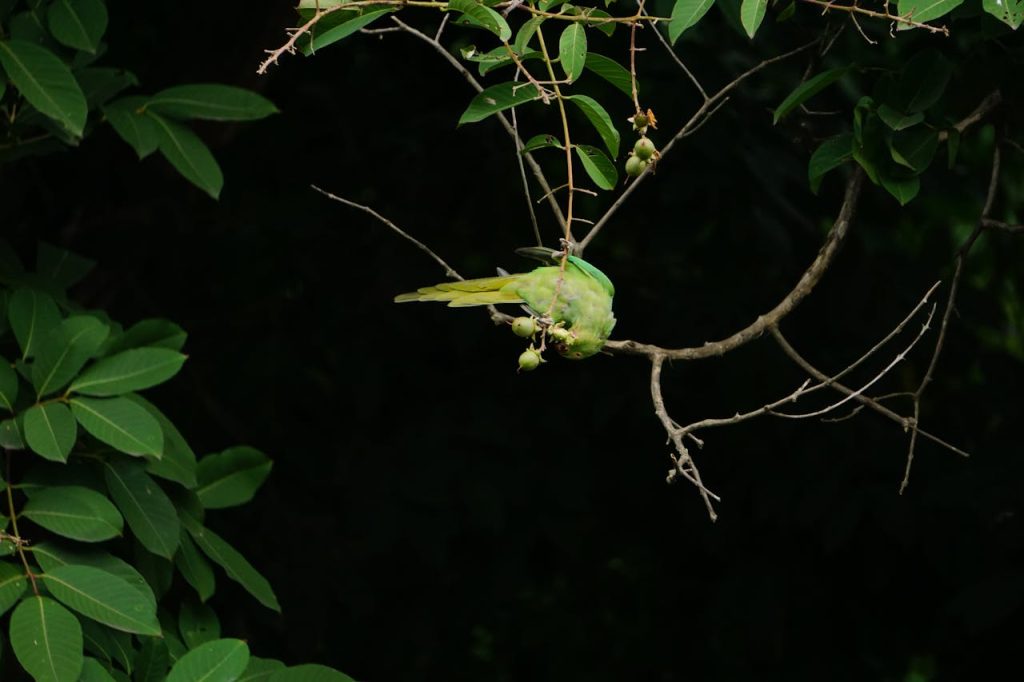
Housing and Environment
Despite their small size, Parrotlets need a spacious cage with room to move and exercise. A cage size of at least 18x18x24 inches is recommended, with horizontal bars for climbing. Provide multiple perches, chew toys, and swings to keep them entertained.
Place the cage in a social area but away from direct sunlight, drafts, or excessive noise. Letting them out for supervised playtime daily is essential for their well-being.
Grooming and Hygiene
Parrotlets require regular grooming to stay healthy. Here are some key care tips:
- Bathing: Offer a shallow water dish or misting for feather cleaning.
- Beak and Nail Care: Provide natural wood perches and cuttlebones to help maintain their beak and nails.
- Cage Cleaning: Regularly clean food bowls, perches, and the cage to prevent bacteria buildup.
Fun Facts About Parrotlets
- Parrotlets are often called “pocket parrots” due to their small size.
- They have a strong personality and can be territorial if not socialized properly.
- Unlike some parrots, they are relatively quiet, making them great for apartments.
- Despite their size, they are known for their fearless nature.
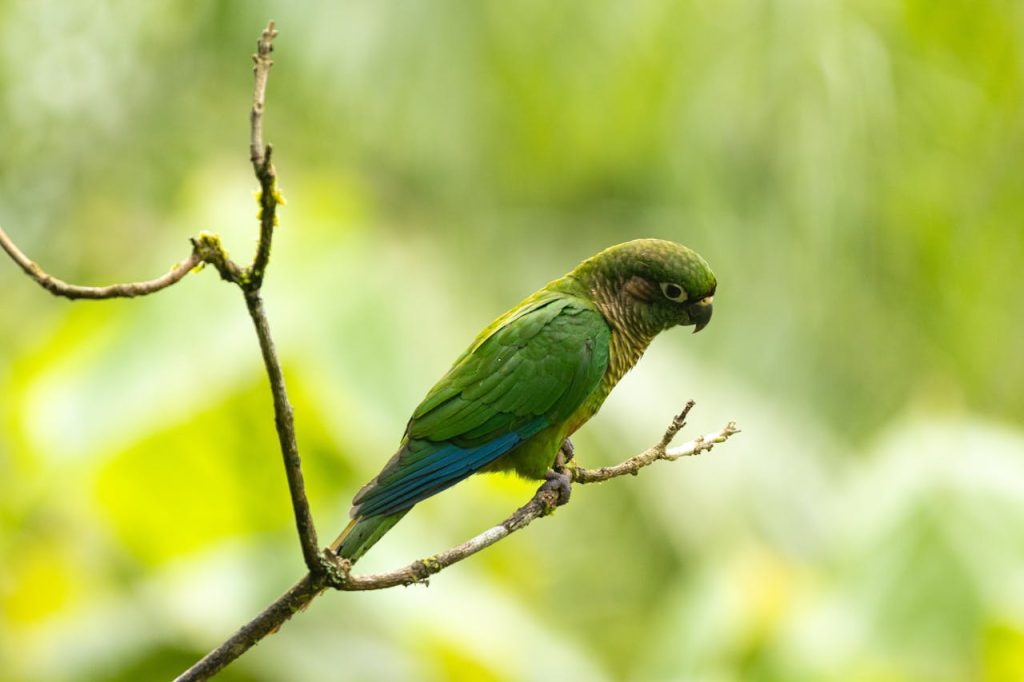
Training and Socialization
Parrotlets require consistent training and socialization from an early age. They respond well to positive reinforcement and enjoy learning new tricks.
Spending daily quality time with them helps prevent behavioral issues such as biting or territorial aggression.
Common Health Issues
- Feather Plucking – This can occur due to stress, boredom, or improper diet.
- Respiratory Issues – Symptoms include wheezing or nasal discharge.
- Vitamin Deficiencies – Lack of proper nutrition can lead to weak bones and poor feather health.
- Obesity – Too many seeds and nuts without enough exercise can cause weight problems.
Breeding Information
Parrotlets can breed successfully in captivity. A breeding pair will typically lay 4-6 eggs per clutch, with an incubation period of about 18-22 days.
The chicks are ready to fledge in 4-5 weeks but require parental care before becoming independent.
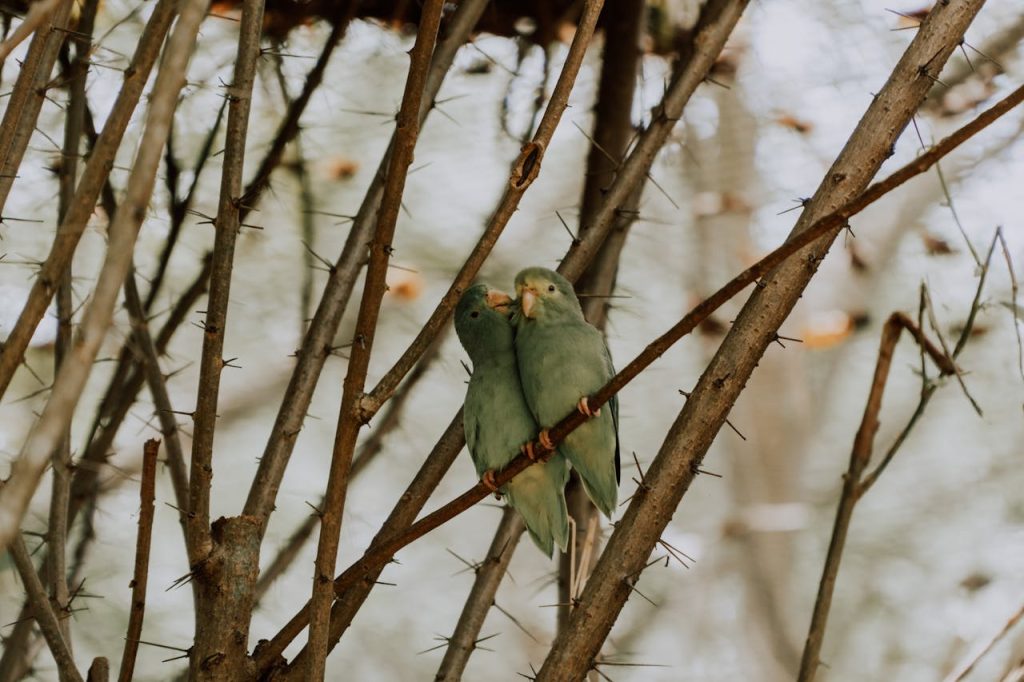
Signs of a Healthy Bird
A healthy Parrotlet should display:
- Bright and alert eyes
- Smooth, vibrant feathers
- Active and playful behavior
- A strong appetite
Any signs of lethargy, weight loss, or feather damage may indicate an underlying health issue requiring veterinary attention.
Interaction with Other Pets
Parrotlets can be territorial and may not get along well with other birds or pets. If introducing them to other animals, do so with caution and supervision.
Due to their small size, they should be kept away from larger birds that might see them as a threat.
Noise Levels
Parrotlets are relatively quiet compared to other parrots, making them suitable for apartment living. However, they can produce sharp chirps and whistles, especially when excited or seeking attention.
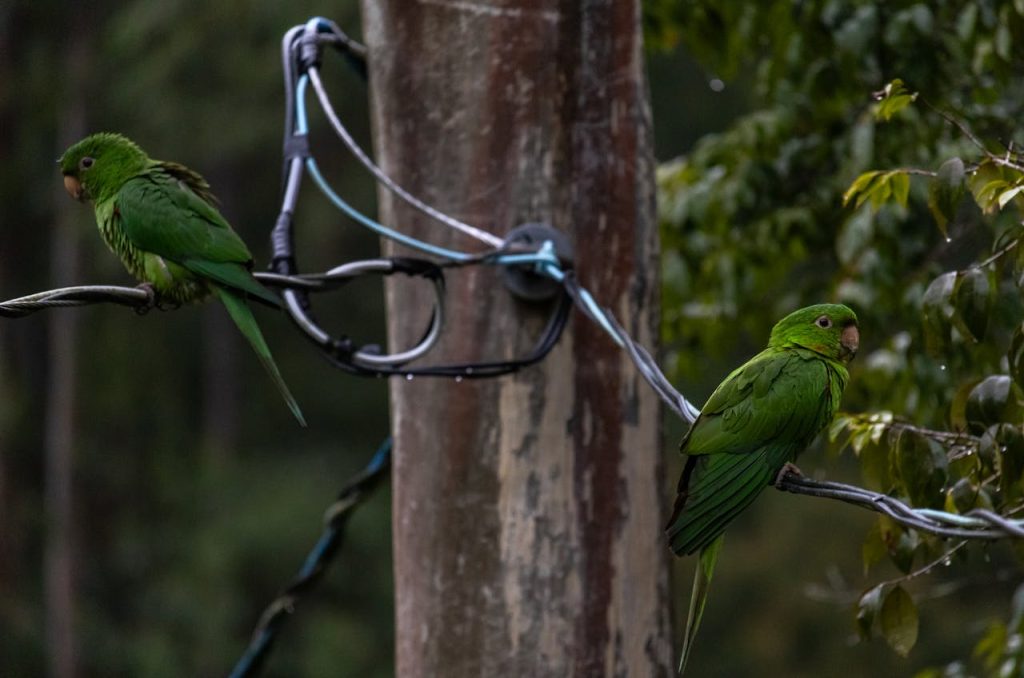
Challenges of Owning a Parrotlet
- Requires daily interaction and mental stimulation.
- Can develop aggressive behaviors if not socialized properly.
- A long lifespan means a long-term commitment.
- Prone to territorial behavior if not handled regularly.
- Needs a balanced diet and proper exercise to prevent health issues.
Learn More About Bird Breeds
Parrotlets are just one of many fascinating pet bird species. If you’re interested in exploring more, check out our guides on Macaws: Majestic Pet Birds, Cockatiels for Beginners, Lovebirds Behavior & Bonding and African Grey Parrots to learn about the unique traits, care needs, and joys of owning these amazing avian companions.
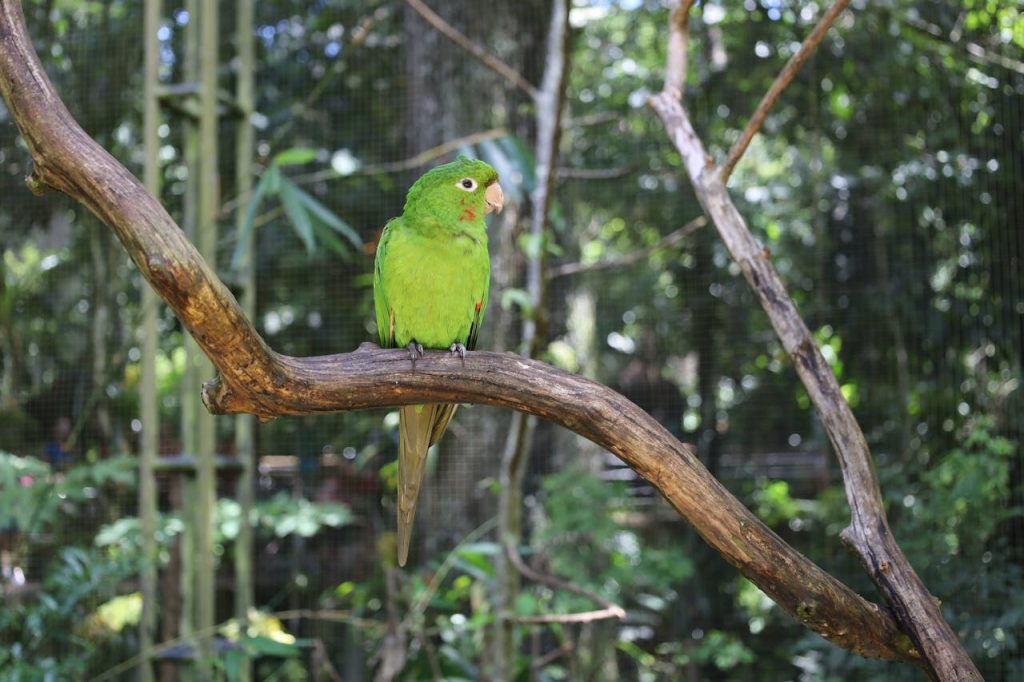
Conclusion
Parrotlets may be small, but they are full of character, intelligence, and charm. They require dedicated care, regular socialization, and a stimulating environment to stay happy and healthy. While they can form deep bonds with their owners, they also demand attention and commitment. With the right care and training, Parrotlets make wonderful companions that bring joy and energy to their owners for many years.
FAQs
Is a parrotlet a good pet?
Yes, parrotlets are great pets for those who want a small, intelligent, and playful bird with a big personality. They require social interaction and training.
What is the lifespan of a parrotlet?
Parrotlets live around 15–20 years with proper care.
How much does a parrotlet cost?
The price ranges from $100 to $500, depending on the species and breeder.
Are parrotlets the smallest parrot?
Yes, they are among the smallest true parrots, slightly larger than budgies.
Can parrotlets talk?
Some parrotlets can learn words and phrases, but their talking ability is limited compared to larger parrots.


